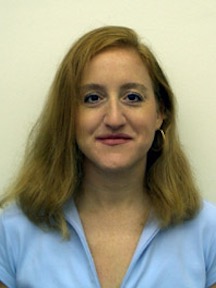By Jacob Gambrell
While it may be a cliché phrase, “if you can see it, you can be it” still expresses a very true sentiment when it comes to representation in academia. As students attend university courses, they will naturally gravitate towards professors who share similar experiences with them due to ethnicity, gender, or other characteristics. These students who develop close relationships with their professors are more likely to go on and pursue their own academic careers. Unfortunately, in many universities’ faculties, there is an overrepresentation of white males and an underrepresentation of women and people of color in relation to their student bodies. Sandra Spiroff, President of the ΦBK chapter at the University of Mississippi, has worked hard in promoting women in mathematics in order to help mend this representation deficit.
Spiroff attended the University of Indiana where she was a junior Phi Beta Kappa inductee in 1990. Originally an elementary education major, she discovered she had a love for mathematics and changed her major. She went on to receive her master’s at St. Louis University and her Ph.D. in mathematics at the University of Illinois Urbana-Champaign in 2003. Her research specializes in commutative algebra and helped developed software that automates the Hilber-Kunz multiplicity and F-signature calculations for intersection algebras.
In addition to teaching and research, she has been President of the University of Mississippi chapter of Phi Beta Kappa since 2018. Much of her passion, however, is to help increase the representation of women and minorities in mathematics. She works with the National and Gulf States Math Alliance to help promote students of color. She is also the co-organizer of the Women in Commutative Algebra workshop held at the Banff International Research Station for Mathematical Innovation and Discovery. This event, funded by the Association for Women in Mathematics ADVANCE grant along with the National Science Foundation, seeks to provide a space to “Advance the academic careers of women algebraists through research publications and professional connections, including those from historically underrepresented groups, from universities with a teaching focus and small colleges, and those isolated geographically from potential collaborators.”
“Women in mathematics are desperate for high quality events like this workshop” said Spiroff. Out of only 28 slots, they had over 120 applications. “When I first started, the women who presented at these conferences and workshops were very nervous. Now I have noticed that many of the younger women speak much more confidently.” She thinks that this progress is largely in part of her generation of women mathematicians to pave the way for those behind them. “Representation matters, and leadership leads the way,” Spiroff added.
This progress is also evident in that the two most prestigious awards in mathematics were both recently won by women for the first time in their histories. Maryam Mirzakhani won the Fields Medal in 2014 and Karen Uhlenbeck won the Abel Prize in 2019. However, there are still invisible barriers for the advancement of women in mathematics. Spiroff says implicit biases are still prevalent as acceptance at the top tiers remain difficult for women mathematicians to achieve. Skeptics are still more likely to ask, “is she qualified?” than they would ask of her male counterpart, she noted.
These barriers limit our society from allowing the best and brightest among us to lead. When academia was dominated by white males alone, so much of our intellectual potential was limited as brilliant potential students did not have the same access to academic institutions. Thanks to years of hard work and struggle, we have made tremendous progress as more women scholars and scholars of color have joined the ranks of academia and made massive contributions to their fields. The representation of these scholars continues to inspire students like them who will in turn inspire future generations of students. There is still much progress to be made, but thankfully we have leaders like Sandra Spiroff to help show the way.
Jacob Gambrell is a senior at the University of Mississippi majoring in international studies and Spanish. He was inducted into Phi Kappa Beta there in 2018. The University of Mississippi is home to the Beta of Mississippi chapter of Phi Beta Kappa.




